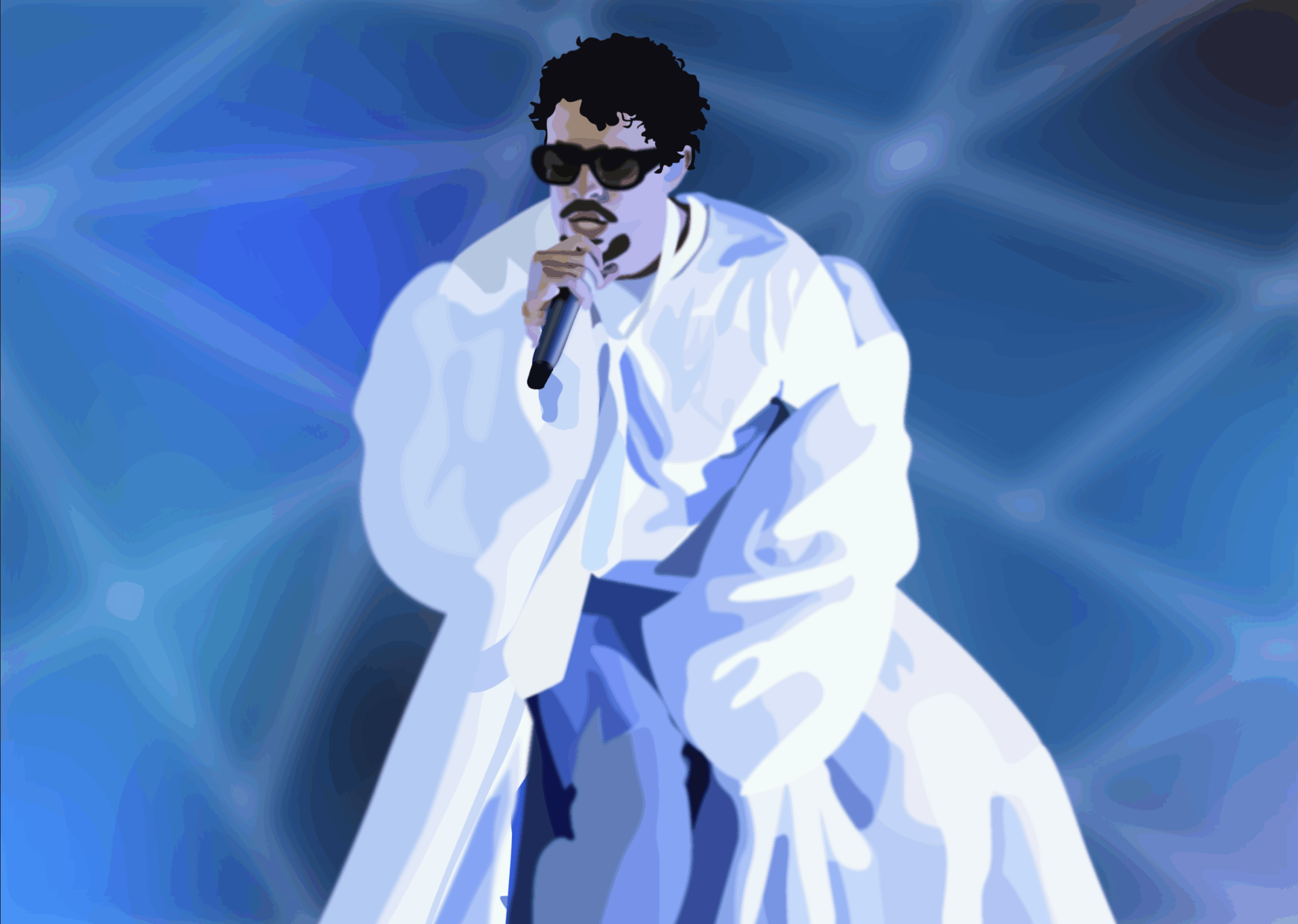Latin music is ready to take on the Super Bowl, again.
On Sept. 28, the National Football League (NFL) announced that Latin recording artist Bad Bunny will perform at the annual Super Bowl LX Halftime Show on Feb. 8, 2026.
The Super Bowl is a highly anticipated sports event with an even grander halftime show. In a few months, countless Americans will be turning on their TVs to come across what could be a massive controversy: an unofficial tradition of politics and culture wrapped into a single performance.
Some argue that politics should not be part of the halftime show, or the Super Bowl, or even music for that matter. However, the main thing to critique this February will be how well Bad Bunny can deliver his message to the masses and how well people are willing to listen. That balance between artistry and clear messaging is what can truly spark conversations within communities.
Bad Bunny plans on centering his performance on his Puerto Rican heritage and history, shedding light on Latin culture, music and art, all while highlighting the political tension that has grown in the U.S. since President Donald Trump’s reelection. Next year, viewers will witness yet another blend of art and political commentary on one of America’s biggest stages.
The tradition of Super Bowl performances began in the late ‘70s, starting with marching bands before making a drastic shift when Michael Jackson took the stage in 1993. Thereafter, the NFL’s choice in halftime performers has grown more expansive through the years, representing a wide variety of musical genres with an even wider range of cultural influences. With a trend of non-white artists making headlines in recent years, this pattern has become a talking point for many people across the country.
When Bad Bunny was selected, many took to social media to share their passionate thoughts on his future performance and its implications. Some were frustrated because he had previously excluded his U.S. leg for his Debís Tirar Más Foto World Tour due to concerns with Immigration and Customs Enforcement (ICE) officers potentially harming his fans. Yet, he decided to perform in the U.S. for this halftime show despite reports of ICE agents being requested for at the Super Bowl as well.
In this case, the difference is that he is not putting his typical audience, which is predominantly Latino, directly at risk. Rather, he is turning towards an event where white, affluent viewers can be expected. These are strategic decisions to minimize risk and to speak to a certain audience.
Some frustrated complaints are arising over the fact that a non-white and non-English-speaking performer, who will likely perform his music entirely in Spanish and focus it on Latin culture, rather than traditional “American values.” This frustration is ironic considering Bad Bunny is a natural-born U.S. citizen, as he hails from Puerto Rico — a territory within the United States. It begs the question: Is all of this outrage really about desires to celebrate American culture? Or is it about desires to preserve whiteness as the only true hallmark of American culture? Let’s not forget that this isn’t the first time an artist has used their platform to share commentary on current political and social issues in the U.S. as well.
“Just look at classics like What’s Going On by Marvin Gaye, he was literally talking about the Vietnam War,” Sahil Datta, Los Angeles artists and repertoire producer, told New University. “‘Bombs Over Baghdad’ by Outkast, ‘Toy Soldiers’ by Eminem, ‘Get Up Stand Up’ by Bob Marley… all of those are iconic, and the political message is what gave them so much weight in that moment. People felt those songs because they reflected what was really going on at the time.”
For many years, politics have played a huge role in these halftime shows — from past performances from Shakira and Jennifer Lopez taking jabs at U.S. immigration policy, Lady Gaga’s “Born This Way” LGBTQ+ anthem to conclude her performance and most recently, the entirety of Kendrick Lamar’s 2025 halftime show with commentary on the Black Lives Matter Movement and swipes at the Trump administration.
“Even attending the Super Bowl is a political choice to me,” Alondra Miranda Chavez, a Biological Sciences student at UC Irvine, told New University.
Throughout American and even global history, music has served as a unique means of commentary covering a vast range of topics, especially politics. Politics have always been closely intertwined with music and performances; we shouldn’t be questioning whether they have a place in performances like the halftime show but rather what message it is conveying to us viewers.
Siona Chibber is an Opinion Intern for the fall quarter 2025. She can be reached at schibber@uci.edu.
Edited by Casey Mendoza and Joshua Gonzales

